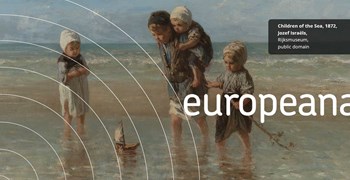Voices from the past still echo today
While visiting the various regions of France, one might wonder what he might have heard in those places a century ago.
![[Vendée] : [dessin] / [Bergeron], National Library of France, Public domain.](http://blog.europeana.eu/wp-content/uploads/2016/08/Dessin-Vendee.jpeg)
[Vendée] : [dessin] / [Bergeron], National Library of France, Public domain Marked.
Ferdinand Brunot, the founder of the Archives of the Spoken Word, embarked on three recording tours in 1912 and 1913. Between June and July of 1912, Brunot and his assistant Charles Bruneau toured the Ardennes region of France and Belgium in an automobile. They visited 35 villages and returned to Paris with 166 recordings (oral testimonies, dialogues, folk tales and songs). In June 1913, Brunot visited the Berry region of central France, collecting material about the late author George Sand. Finally, in August of 1913, he toured the Limousin region, producing 72 phonograph recordings.
Listen to Le vingt-cinq de décembre, je me suis t’engagé registered by Ferdinand Brunot in 1913.
![Fêtes des druides au Mont Gildas [homme en costume vendéen] : [photographie de presse] / [Agence Rol], 1911, National Library of France, Public domain.](http://blog.europeana.eu/wp-content/uploads/2016/08/Fetes_des_druides_au_Mont.jpeg)
Fêtes des druides au Mont Gildas [homme en costume vendéen] : [photographie de presse] / [Agence Rol], 1911, National Library of France, Public Domain Marked.
Later, Roger Dévigne, Director of the Phonothèque nationale from its creation in 1938 until 1953, followed Brunot’s idea of phonographic linguistic map. He organised several sound recording missions: in the Provençal Alps in 1939, in Languedoc-Roussillon Pyrenees in 1941-1942, in Normandy and Vendée in 1946, leaving us precious testimony of local traditions.
![Bourrée bourbonnaise / [photogr. de] Bibliothèque nationale de France, National Library of France, Public Domain Marked.](http://blog.europeana.eu/wp-content/uploads/2016/08/Bourree_bourbonnaise.jpeg)
Bourrée bourbonnaise / [photogr. de] Bibliothèque nationale de France, National Library of France, Public Domain Marked.
Those recordings are now part of the National Library of France’s collections. They are carefully preserved and stored. They have been restaured, digitised and made available online through Gallica and, more recently, through Europeana Sounds.

La crèche : la chabrettaire, la fileuse et le joueur de pipeau / artiste anonyme limousin XVIIIe, National Library of France, Public Domain Marked.
The past still resonates today…
Let’s rediscover this precious heritage together. During the European Heritage Days, the National Library of France organises, as part of the Europeana Sounds project, a big public event. On Sunday 18 September, we will gather to listen to some traditional French music recorded in 1913 and in 1946. Pascal Cordereix, Head of the sound archives service at the Audiovisual Department of the BnF will present the recordings, BnF’s sound collections and their dissemination via the Europeana Sounds project. Then, singers specialised in traditional music will take the floor to reinterpret those same recordings. For more information about this event please visit the Europeana Sounds website.

by Lionel Michaux and Axelle Bergeret-Cassagne, National Library of France












